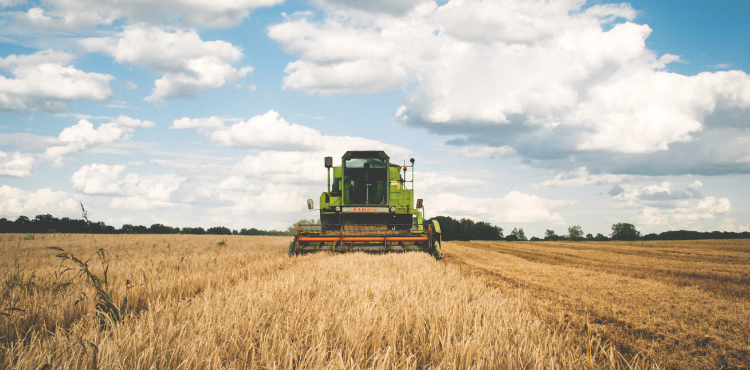Given the economic and strategic importance of farming land, Australia has developed a regulatory framework to safeguard its sovereignty, especially concerning foreign investment.
This report outlines key legislation that protects Australian land sovereignty, restrictions imposed on lenders—particularly those with foreign investments—and the various financial benefits available to farmers. It concludes with the value of partnering with an experienced loan broker to secure the best lending outcomes.

1. Legislative Protections for Australian Land Sovereignty
Australia’s legal framework is designed to limit foreign influence over agricultural assets, ensuring that farming land remains largely under domestic control. The following legislation is central to these protections:
1.1 Foreign Acquisitions and Takeovers Act 1975 (FATA)
The Foreign Acquisitions and Takeovers Act 1975 is a primary piece of legislation governing foreign ownership of Australian assets. Under this Act, foreign entities intending to invest in Australian agricultural land must receive approval from the Foreign Investment Review Board (FIRB). This requirement applies to:
- All foreign investments over AUD 15 million (cumulative threshold).
- All foreign government-related investors, regardless of investment size.
FIRB approval allows the Australian government to assess potential acquisitions against the national interest, ensuring that critical agricultural assets remain under Australian control when necessary.
1.2 Foreign Ownership of Agricultural Land Register Act 2015
This Act requires foreign entities to register any acquisitions of Australian agricultural land with the Australian Taxation Office (ATO). This register provides transparency on foreign ownership of agricultural land, allowing the government to track foreign investments and make informed policy decisions.
1.3 Security of Critical Infrastructure Act 2018
This Act extends beyond agriculture to protect all critical infrastructures, including assets considered essential to Australia’s food security. It enables the government to intervene if foreign investment threatens the sustainability of agricultural resources critical to national interest.

2. Restrictions on Lenders with Foreign Investment in Primary Produce Land
While lending against primary produce land can be lucrative, regulatory restrictions limit the involvement of foreign capital in agricultural financing.
2.1 FIRB Restrictions on Foreign-Backed Lenders
Private lending funds with significant foreign investments must also navigate FIRB approval processes, which can restrict their ability to secure primary produce land as collateral. If a fund’s foreign ownership reaches certain thresholds, it may require FIRB approval to issue loans backed by agricultural land, particularly if the fund intends to foreclose and take ownership in case of loan default. This review process can discourage foreign-backed lenders from offering financing secured by agricultural land.
2.2 Impact on Private Lending Funds
Private lending funds that rely heavily on foreign investment face challenges when lending against primary produce land. To minimise FIRB intervention, these funds often avoid loan structures that use agricultural assets as security. Some funds may impose higher interest rates or more restrictive terms to offset the risks associated with FIRB compliance.
2.3 Regulatory Compliance and Reporting Obligations
Foreign-backed funds have additional reporting requirements, including compliance with FIRB and ATO registration mandates, adding complexity and costs to their operations. Consequently, these funds may be less competitive in offering loans against farming land compared to fully domestic lenders.

3. Subsidies, Rebates, and Benefits for Farmers in Agricultural Financing
Australian farmers can access various government support programs, financial benefits, and rebates designed to ease the cost of borrowing and improve their financial resilience.
3.1 Government Grants and Subsidies
Several government programs provide financial support to farmers, often targeting specific needs such as drought relief, environmental sustainability, and resource management. Key programs include:
- Farm Household Allowance (FHA): A payment available to farmers facing financial hardship, providing temporary relief to help them manage expenses.
- Regional Investment Corporation (RIC) Loans: The RIC offers low-interest loans to farmers for drought resilience, environmental initiatives, and productivity improvements.

3.2 Tax Benefits and Income Averaging
Australian farmers are eligible for specific tax benefits that can improve their cash flow and loan servicing ability:
- Income Averaging: Allows farmers to average their income over five years, reducing tax burdens in good years and smoothing financial volatility.
- Instant Asset Write-Off: Farmers can claim immediate deductions for eligible asset purchases, allowing for more rapid investment in productivity.
3.3 Drought and Disaster Relief Programs
Both state and federal governments offer relief programs for farmers affected by natural disasters. These programs can include grants, concessional loans, and subsidies, providing farmers with vital support when traditional financing may be unavailable.
3.4 Environmental and Sustainability Rebates
Farmers investing in sustainability practices, such as water conservation, renewable energy, or carbon farming, may qualify for rebates or tax incentives. Programs like the Emissions Reduction Fund reward landholders for reducing greenhouse gas emissions, creating a potential revenue stream that supports sustainable farming practices.
4. The Value of Engaging an Experienced Loan Broker
For farmers looking to secure financing against primary produce land, the lending landscape can be challenging to navigate due to the regulatory requirements, lender restrictions, and variety of available incentives. Engaging a loan broker with expertise in agricultural lending can be invaluable. A knowledgeable broker brings several advantages:
- In-Depth Knowledge of Agricultural Finance: An experienced broker understands the unique risks and value drivers of agricultural assets, ensuring the loan structure aligns with the farmer’s needs.
- Navigating Regulatory Hurdles: Brokers familiar with FIRB, ATO, and other compliance requirements can help avoid pitfalls associated with foreign-backed lenders and regulatory restrictions.
- Maximising Financial Benefits for Farmers: A broker’s knowledge of subsidies, tax benefits, and government support programs can help farmers secure more favourable loan terms.
- Access to a Broader Network of Lenders: With access to a wider pool of both domestic and foreign-appropriate lenders, brokers can connect farmers to financing options best suited to their unique situation.
In conclusion, the complexities of financing against primary produce land in Australia underscore the importance of working with an experienced loan broker. A broker can help farmers navigate regulatory requirements, optimise financing terms, and access additional financial benefits—ultimately positioning them for success in a highly regulated and competitive lending environment.
Broker.com.au can help you navigate the agri lending process. Reach out to us today!
To explore more resources and expand your knowledge about agri lending and securing loans with farm assets, visit our comprehensive Resources & Learning page.





